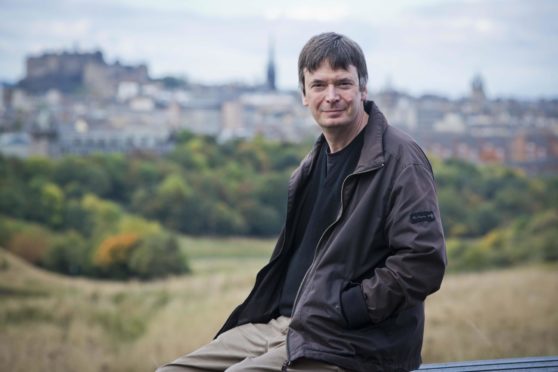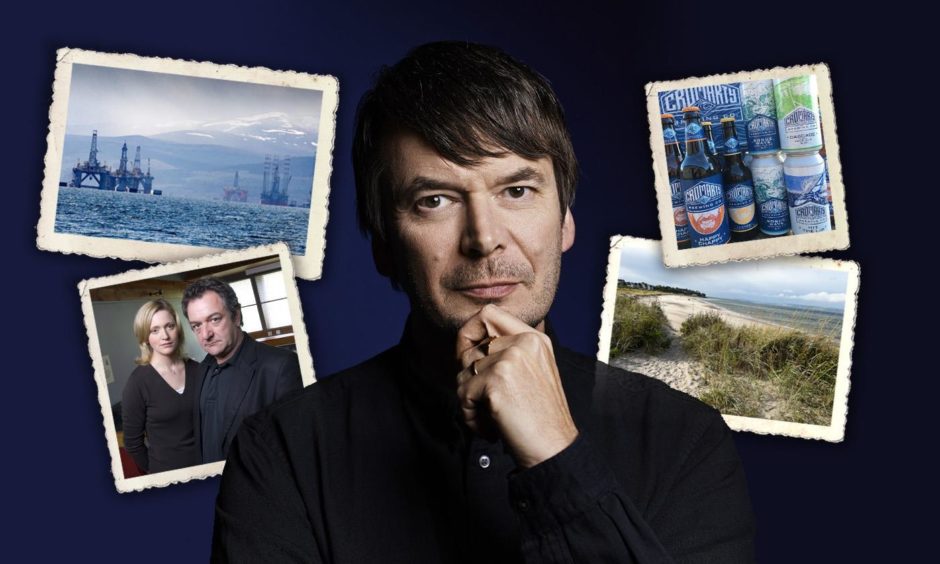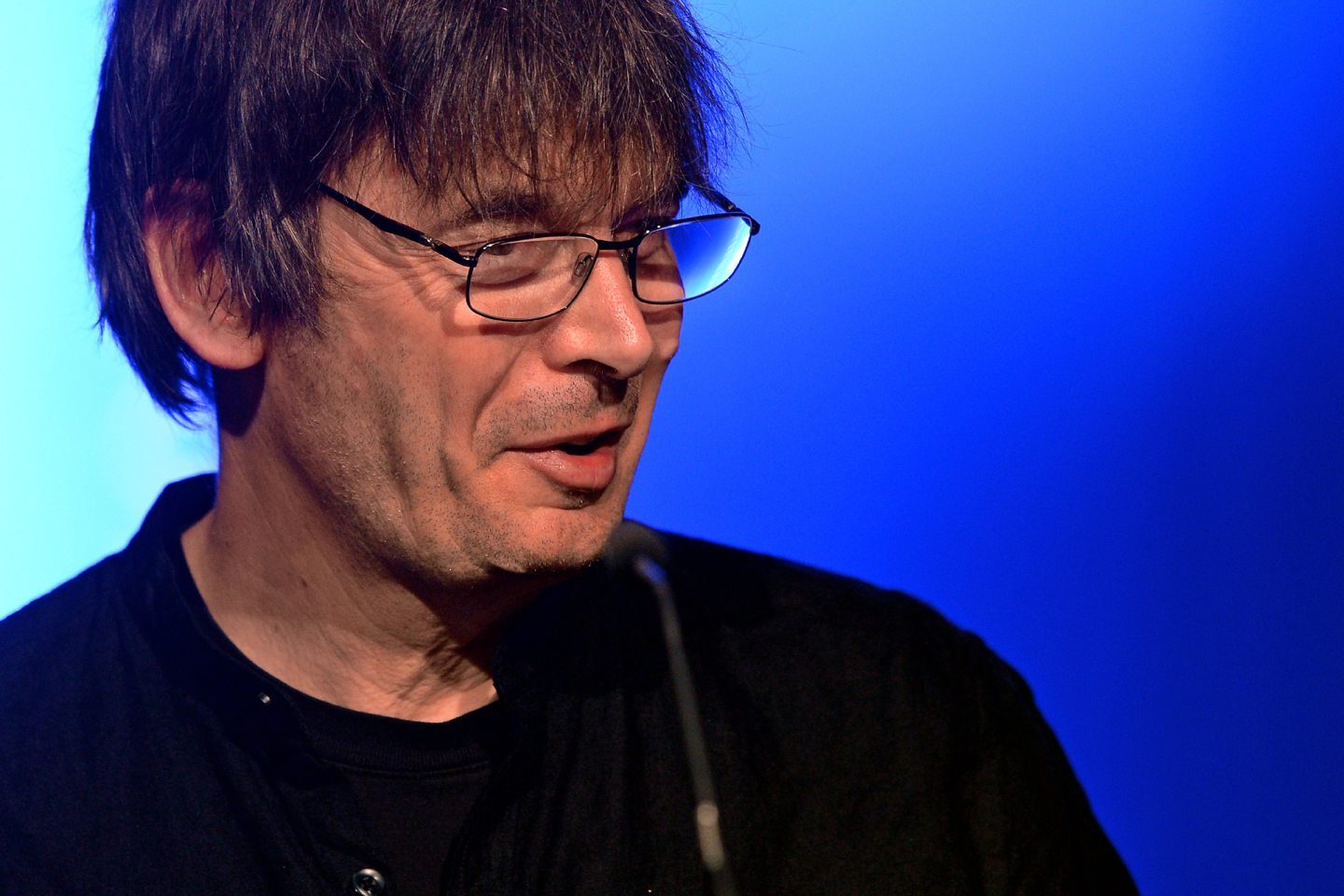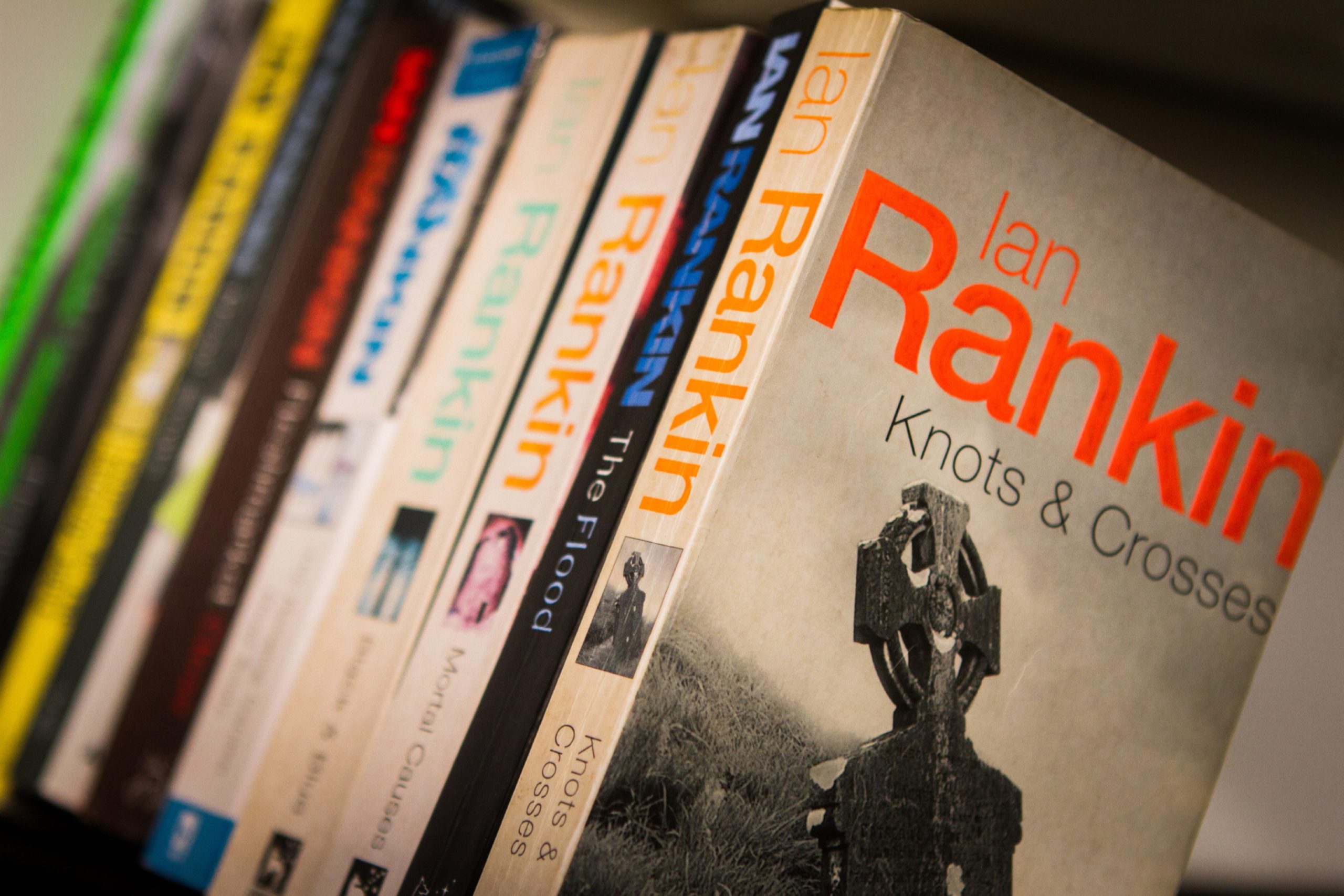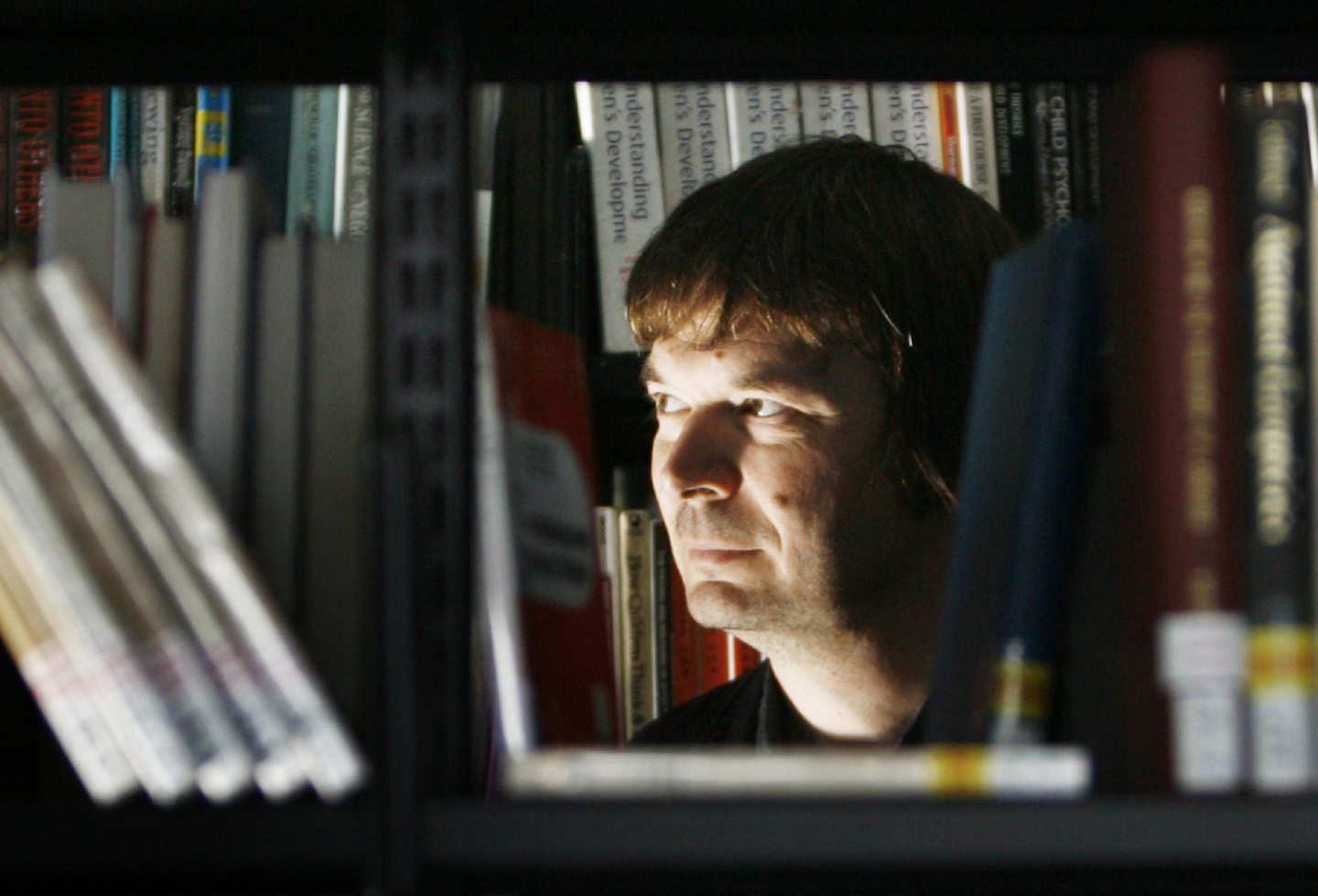With a career spanning more than 30 years, few names are better recognised in crime fiction than Ian Rankin.
But what inspired the Fife-born author into a world of entertainment through exploring Edinburgh’s grim underbelly?
“I have been writing since I was a kid,” he said.
“I used to love reading comics and I used to draw them. I have just always been interested in the written word in stories.
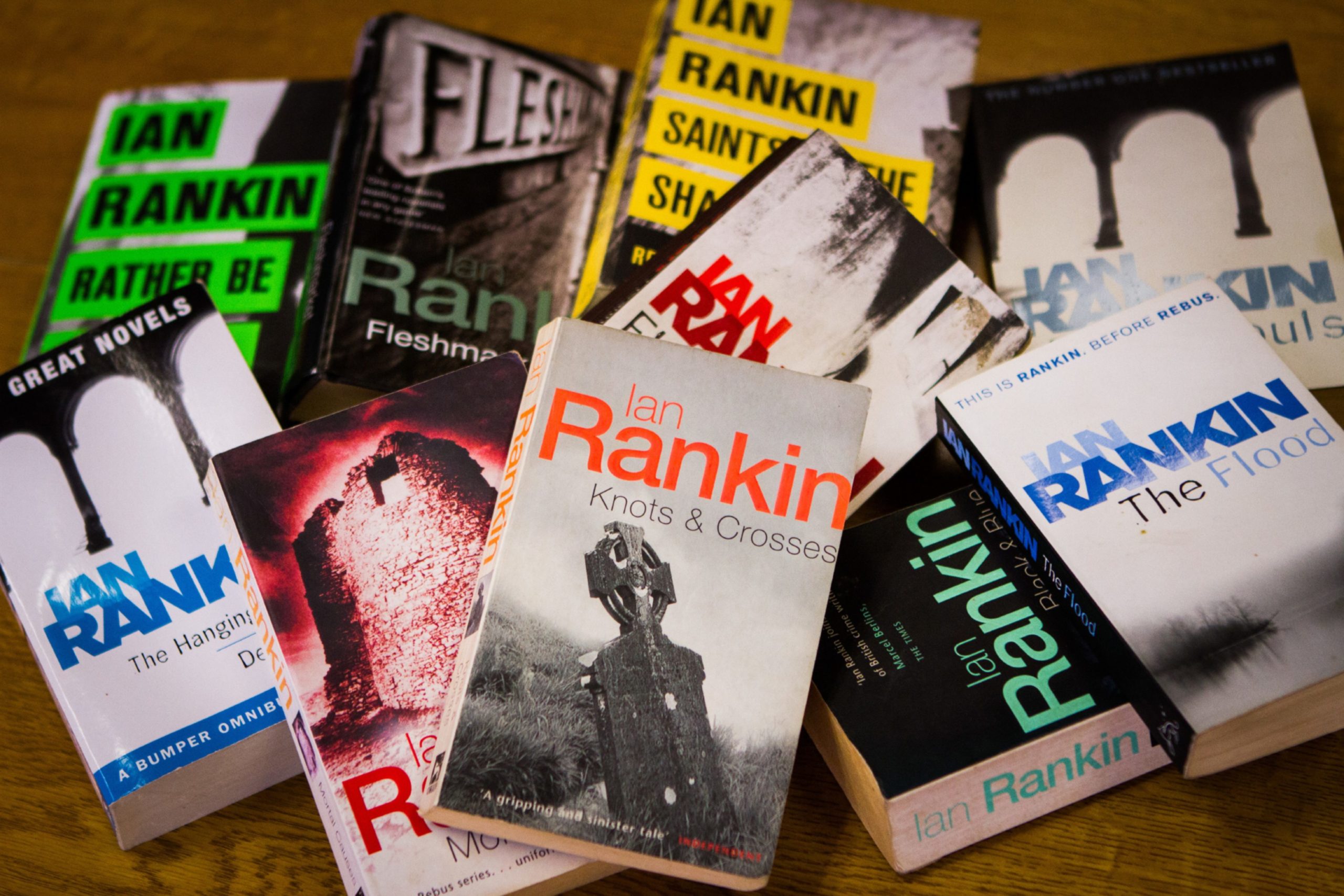
“I went to university to study English and I started writing poetry and short stories. Eventually when I was a postgraduate student, I started to write a novel, and then another novel after that and another novel after that.
“One of those was the first Inspector Rebus book. Up until then I hadn’t thought about writing crime fiction but having written one crime novel, I liked it and I liked the access that a detective gives me from society from top to bottom.
“I can write about social issues, I can write about politics and I can write about all sorts of things through this one character exploring the world on my behalf.
“That was that.”
Career stalled until ‘paid hobby’ became a full-time job
It didn’t all start off easy for Ian Rankin.
Instead it took many attempts and many years of his “paid hobby” to be able to turn his passion into a career.
“At first I couldn’t do it full-time because I wasn’t making any money, it was a kind of paid hobby,” he added.
“My wife was supporting me, we bounced about the place, and I got different jobs. I had all kinds of jobs working on a magazine, working as a secretary, after school and during the summer in uni I would be working in frozen fish factories and chicken factories and all sorts.
“I was a collector of taxes for a short while, I went out to live on a vineyard with my wife in France for a couple of months where we picked grapes, so suddenly we were swine herds and treading the grapes to make wine and all sorts of things.
“Always at the back of my mind I wanted to be a full-time writer.
“When I hit the age of 30 my wife said ‘let’s do it’.
“Let’s leave London behind where we were both working at the time and it was really burning us out, we went and lived in rural France in the middle of nowhere pre-internet.
“I couldn’t speak French and I just sat in the attic with a very basic word processor and wrote books.
“I wrote two books a year to try and make enough money to survive and then kids came along and we decided to move back to Scotland.”
Returning to Edinburgh
Rankin and his wife relocated to Edinburgh in 1996 and began raising their family.
He has a strong tie to the Highlands, visiting Cromarty several times a year where he has a second home.
He has said his passion for writing still burns as fierce as it did 30 years ago.
Rankin said: “In some ways I get to retain my childhood innocence because I am still playing games with my imaginary friends.
“I am doing what I did in my bedroom as a kid. I am just imagining worlds that I get to control.
“I get to have these amazing adventures and they all happen in my head and I get to transfer them to paper.
“It is great. It is childlike almost that you inhabit this imaginary world where these people don’t really exist and somehow people believe in them and want to spend time with them.
“It is not just you that wants to spend time with Rebus – it is all these people as well.
“It is fun. Writing should be fun. If it starts to feel like a job then maybe you are doing something wrong.”
The pandemic has allowed his creative side to flourish
The onset of a global pandemic actually aided his creativity as a whole new Rebus novel was penned, alongside other projects.
“Certainly in the past year, this lockdown year, I have written more than I ever have before or certainly more than I have in a very long time.
“I wrote the whole of the Rebus novel this year and then I moved on and wrote a 10 minute play for the National Theatre of Scotland about Rebus in lockdown and that was put on YouTube.
“I was approached by a publisher to finish a book that had been started by the crime writer William McIlvanney before he died featuring his character Laidlaw in 1970s Glasgow so that was quite a challenge.
“Writing has once again become my escape. It has become an escape tunnel from the pandemic.
“When I was a kid I escaped my wee bedroom in a working class coal mining village by writing stories, writing adventure stories and I am still doing that and falling in love with it again.”
Teachers had a large influence on his career
Rankin has paid tribute to his school teachers who allowed for his passion for writing and books to flourish.
“I was kind of fortunate as someone who loved reading and reading books, I was fortunate I had a succession of really good English teachers at high school,” he said.
“At high school you would write an essay every week that was a short story basically and one teacher in particular, Mr Gillespie, was very enthusiastic about my short stories.
“My parents weren’t really readers and there weren’t many books in the house.
“I just was absolutely into it. Whenever I went to visit a relative or somebody, I was just always into the bookshelves to see what they had.
“I was the first member of my family to go to uni and my parents, good working class people who had left school at 14 or 15, thought you go to uni to get training, to get a trade, to get a career.
“So I was going to do accountancy to start with and then at 17 I had this sort of epiphany and I broke it to both my parents that really I wanted to study English literature.
“And I think they were kind of bemused and thought ‘what kind of job is Ian going to get with a degree in English literature?’
“And I didn’t know to be honest, I just wanted to study literature.
“Having finished my undergraduate degree, I left uni and went into the cold hard world and didn’t like it and begged to be let back in again to do a PhD.
“Having got the funding for a PhD that is when I really started to write my novels. I had three years of funding and I could just sit in a library for three years and write.
“So I wrote three novels in three years, never did finish the PhD but I did write three novels.
“One of them was never published, one of them got published in very small quantities and the third one was the Rebus novel and that was taken by a London publisher.
“That was the start of it.”
Despite great success over the years, there is one sadness that Rankin was never able to celebrate in the company of his parents.
One of the great sadnesses of it is my parents never stuck it around long enough to see me successful.”
He added: “One of the great sadnesses of it is my parents never stuck it around long enough to see me successful. My mum died when I was 19. My dad died when I was 29.
“By the time my dad died I had been published, I had a couple of books published but I was not at all successful. I think he was still a bit bemused right to the end.
“I think they would be really delighted and really chuffed. I am sure they would.
“I have got one sister still alive so she is the one that gets the books and she has got the shelf full of books and I am sure my parents would have had the same thing and had a shelf full of my books.
“It’s a weird way to make a living. You are telling lies on paper and just making stuff up but I absolutely love it, now more than ever.”
